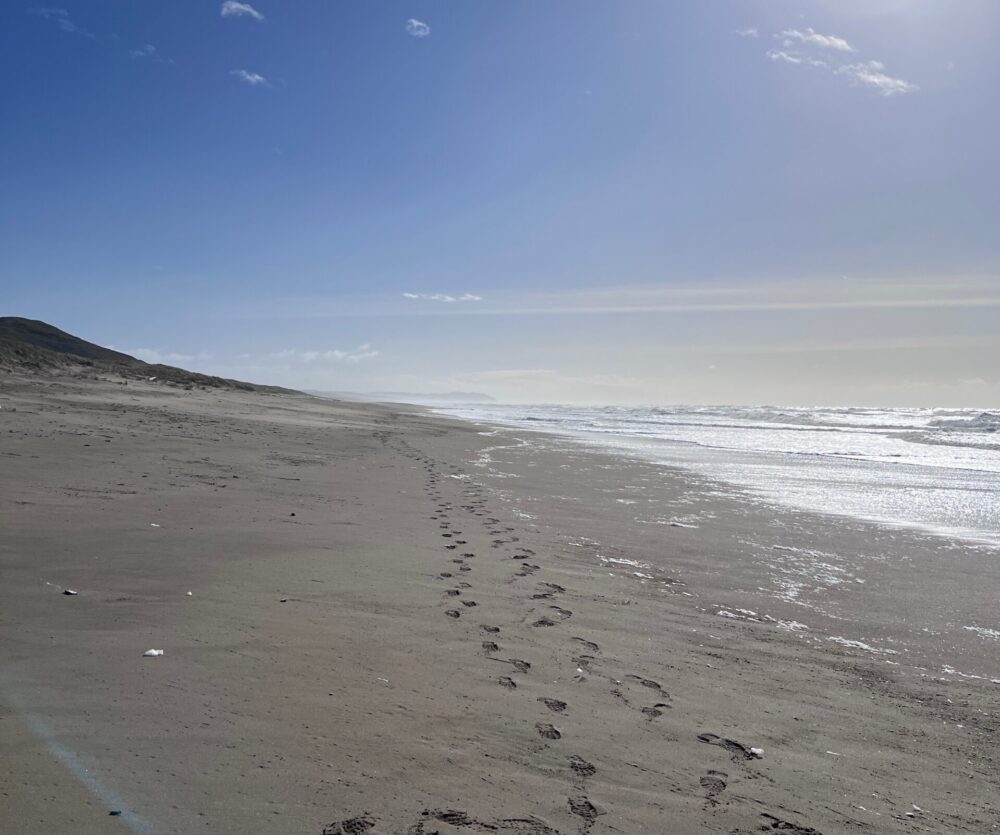By Louie Ferrera
On the cusp of Winter Solstice, I’ve had some thoughts about the upcoming season.
Leaf Ballet
A handful of leaves cling stubbornly to the branches of our majestic valley oak, a tree that one day 20 years ago poked its spindly trunk cautiously out from the cover of thick privet hedges that form one of the borders in our front yard. This tree simply wanted to grow here, it’s now taller than our house and completely fills the view from the two windows in our upstairs room. The few remaining leaves are either green or yellow or brown. One afternoon last week I stood beneath our tree, a soft wind rustled it’s branches and one or two or five leaves at a time gave up their grips and drifted to the ground like snowflakes. I became mesmerized by this ballet of leaf and wind and craned my neck to look up as leaves fluttered down around me. There were moments when no leaves fell then the breeze would pick up and their flight began anew. It felt like I was witnessing a moment of pure grace, a show meant for my eyes only. With the oak’s branches nearly bare, birds have nowhere to hide, I can see them clearly as they flutter about. The bush tits are my favorite. Not much larger than hummingbirds, they move through the tree in flocks of a dozen or more hunting for small insects. Very soon all of the leaves will be gone. Our oak will wait patiently through winter until the first bud break of spring. A carpet of coffee-colored leaves now covers the ground like puzzle pieces, waiting to be raked into piles or blown about by the wind.
Winter Sky
The winter sky this morning is perfectly white, unmarred by any recognizable cloud forms or patches of blue. Some would call it drab but I think that the color of the winter sky is the most beautiful color of all. It’s the perfect canvas for spindly, leafless branches or the lush greens of redwood or cypress trees. The contrast is stark, making these trees literally jump off the sky-canvas. Hitchcock crows are black Vs against the sky, dark and ominous their plaintive caws send a chill up my spine. The dome of overcast deadens all sound, everything is hushed, the world is holding its breath. Where I live we’re blessed with many months of warm temperatures and blue skies. It’s during this time that I yearn for a day like today. The rains so far have been frequent and drenching; 22 inches in the past two months. The hills are green, the ground saturated, trees and buildings, sidewalks and streets have all been cleansed of summer dust. The smell of wet earth is intoxicating. The creeks in our neighborhood are brown torrents flowing to the sea. The seasonal wetland behind our house is once again alive at night with a chorus of frogs. The winter sky is the canvas upon which this wonderful winter scene unfolds.
The Language Of Rain
In order to understand the language of rain you need open ears and a quiet mind. The sound of rain through trees is a primeval sound, a sound as old as time itself. While walking through the forest in a rain storm I try and imagine what it was like for our ancestors. The sounds I hear not much different from what they heard. The sound wash of raindrops changes in tone and volume depending upon the size and concentration of the foliage that the rain is falling through.
The sound that rain makes on open water is one long woosh, an unbroken wave of white noise perfect for quiet meditation. I imagine a monk perched peacefully under a dripping stand of giant bamboo watching the ripples as they spread to the shore, each raindrop creating its own flash of diamond-like brilliance when it strikes the surface.
The sound that rain makes when it falls on the corrugated plastic roof over our deck can be quiet and barely audible, like small handfuls of sand being dropped from above or loud and jarring like buckshot. A favorite winter activity of mine is to sit beneath the deck roof, sipping a glass of wine and listening to the spectrum of sound when a storm passes through.


